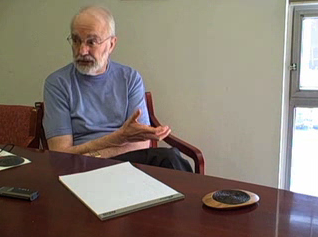Barry Popkin, director of the Interdisciplinary Obesity Program at the University of North Carolina at Chapel Hill and author of The World Is Fat, recently coauthored a study that concluded 20 years of research on the correlation between fast food prices and Americans’ health.
The study detailed the results of the Coronary Artery Risk Development in Young Adults (CARDIA) project, measuring more than 5,000 Americans’ health and the average prices of foods such as sugar-sweetened beverages in their communities between 1985 and 2005. Results showed that, among other things, when prices of fast food and sugar beverages went up 10 percent, participants consumed 56 less calories per day on average.
Popkin sat down with QSR to discuss the role the quick-service industry plays in nutrition and how government taxes on sugar-sweetened beverages might make America healthier.
How important are the results of your study?
In the U.S., clearly obesity and diabetes, is happening earlier than all the other problems, [and] it wasn’t the problem in the 1980s that it is today. Today, one out of every black and Hispanic kids and one out of every three white kids will be diabetic before they die.
I can clearly say it looks like, across the globe, increasing the cost of added sugar in beverages would probably be, at this point, the only preventative solution at the national level that I can see to reduce calories.
Whose responsibility is it to raise soft-drink prices—government or quick serves?
The quick-service restaurants could make a huge impact. If all of them together said, “OK, we’re going to increase the price, we’re not going to supersize and charge less” … people would consume less.
The problem is, you can’t get Burger King or McDonald’s to change the price structure without having all of them do it together.
So you think the government should have to mandate a soda tax?
I think the government has to do it, but industry can play a role, and it’s very hard for industry to do this. Industry could say, “We will agree to these regulations, but we don’t want you to go any further.” And that’s a very hard thing for our industry to do, because they’re afraid that once you open the regulatory door, the dam will break and everything will happen.
Besides taxes, how can you change what Americans eat?
To date, the fast food sector has not stepped up to the plate much with Michelle Obama’s Let’s Move campaign. My hope is that the quick-service sector will … say, “We’ve got to do something, we will do X.” It hasn’t happened yet, and that’s a real challenge, because I think if you don’t make changes and try to head off legislation, it’s going to be harder for the quick-service sector when it comes, because they won’t be looked at as even trying to play the game.











